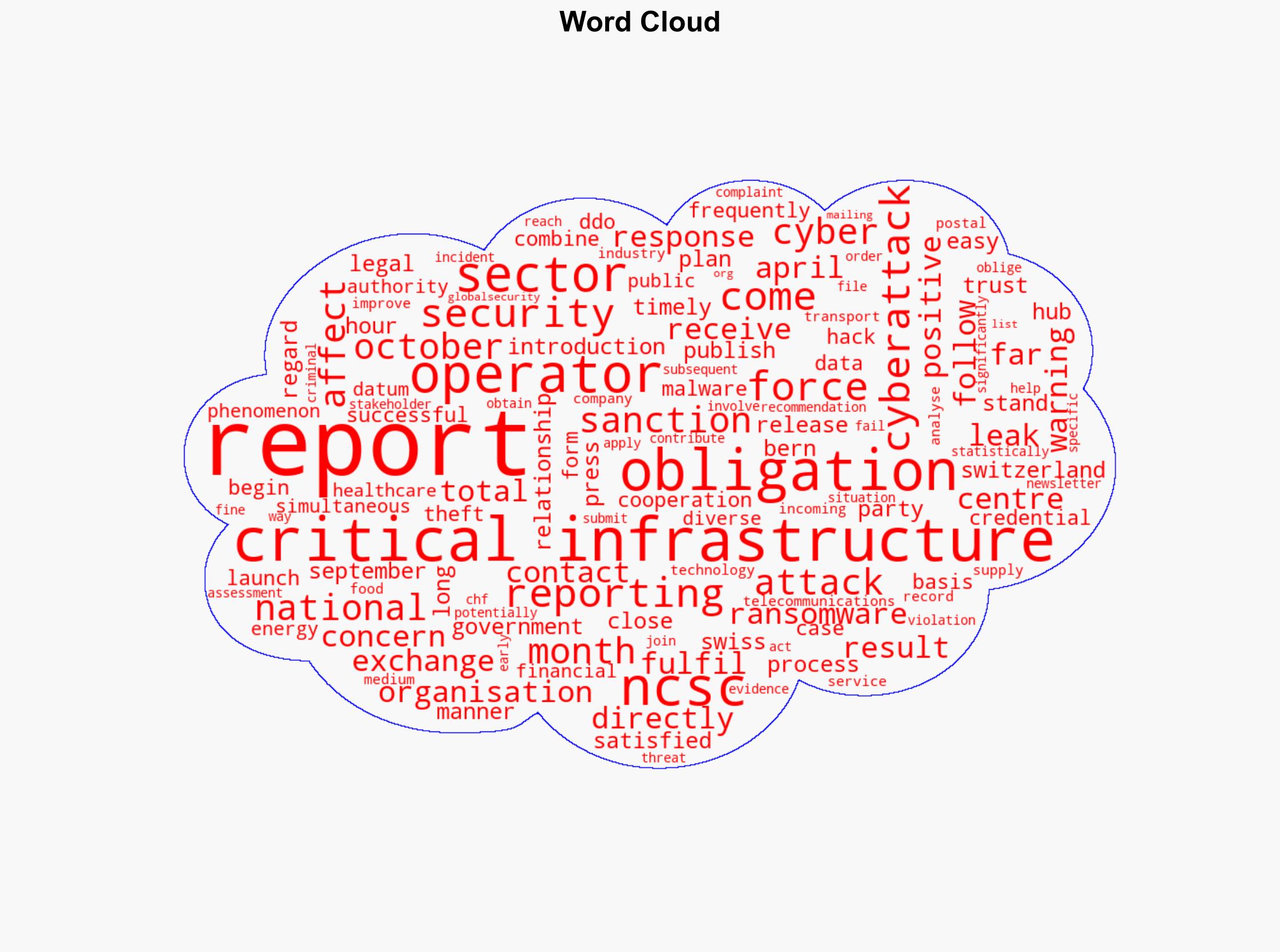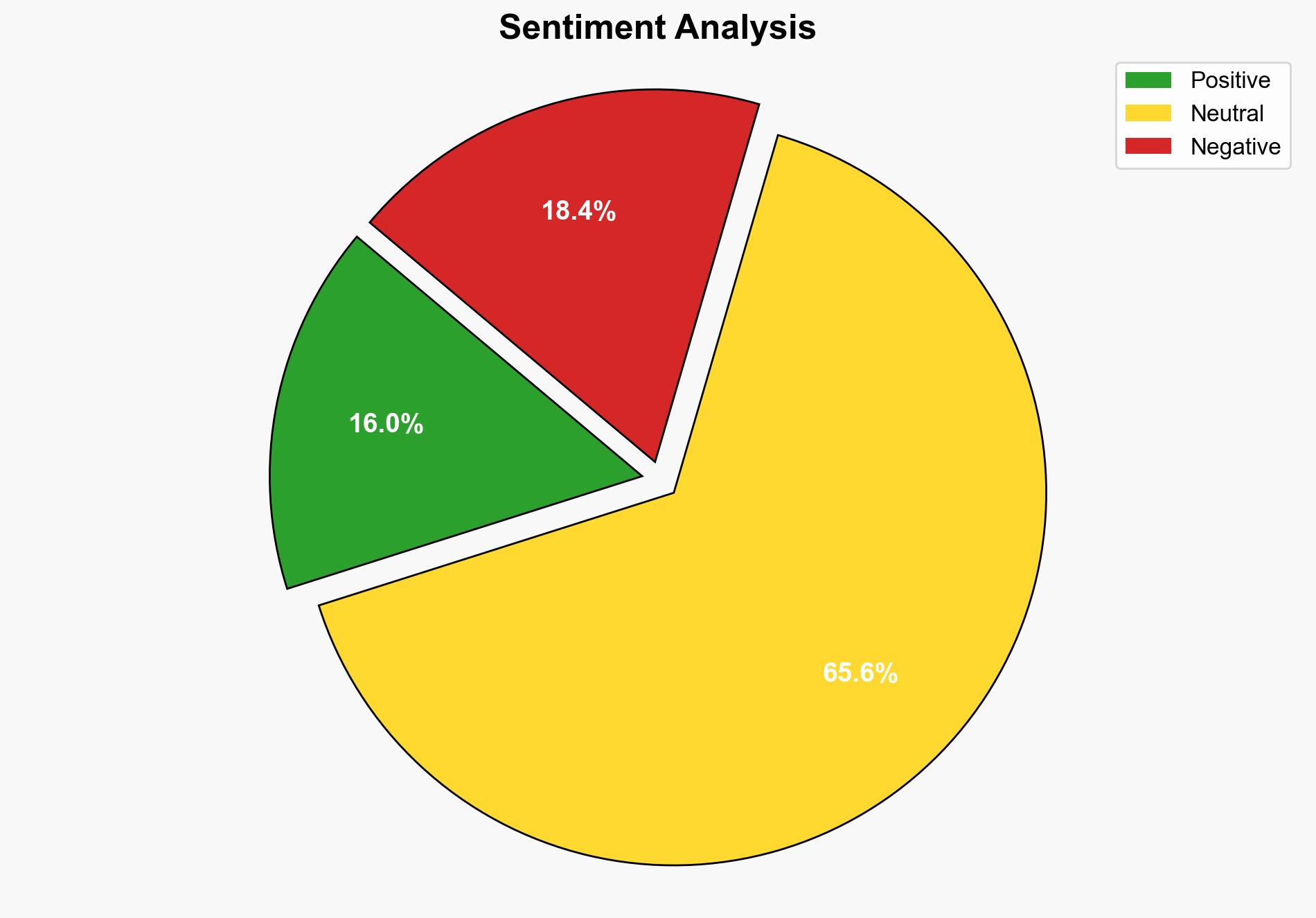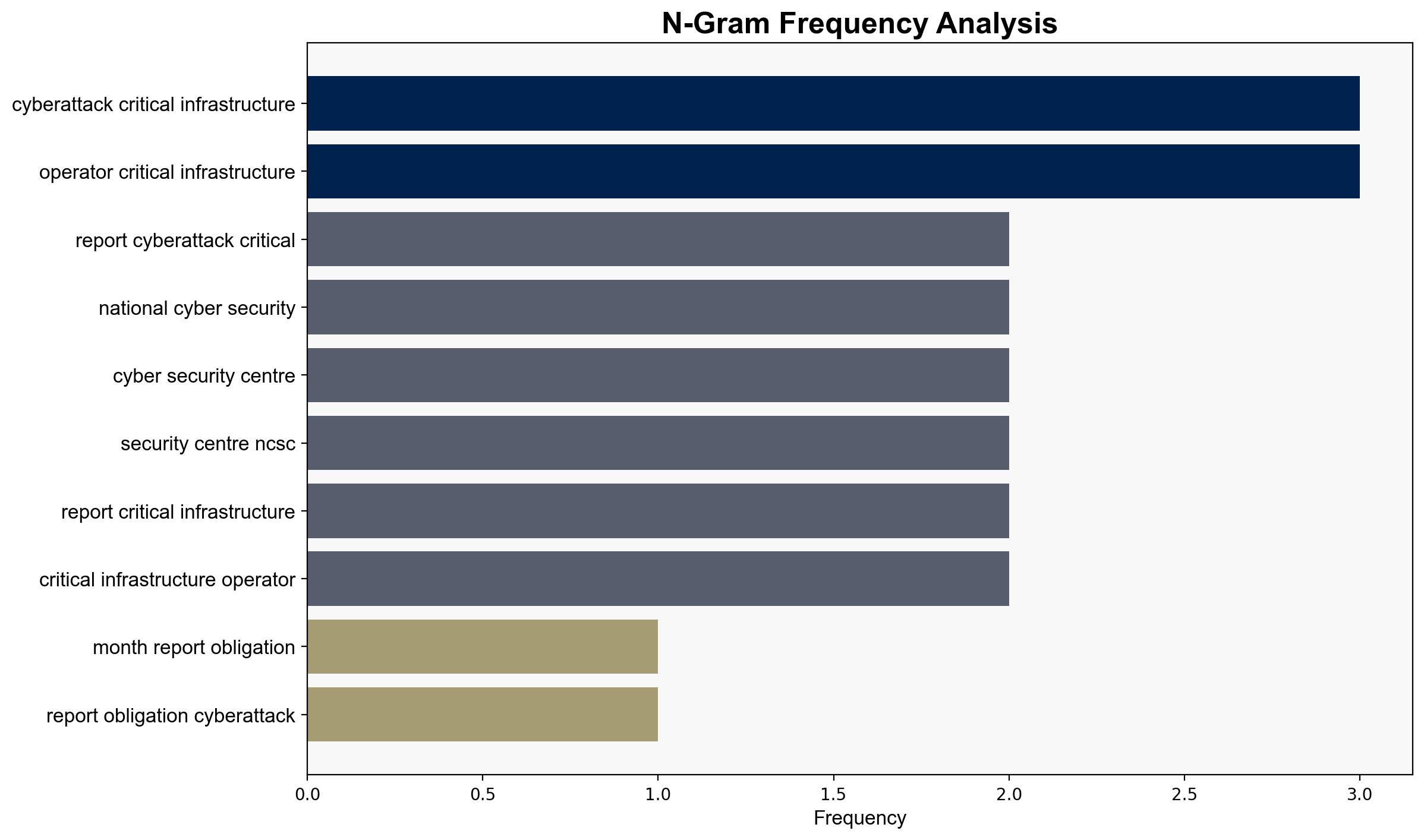Six-month reporting obligation for cyberattacks on critical infrastructures – Globalsecurity.org
Published on: 2025-09-30
Intelligence Report: Six-month reporting obligation for cyberattacks on critical infrastructures – Globalsecurity.org
1. BLUF (Bottom Line Up Front)
The introduction of a six-month reporting obligation for cyberattacks on critical infrastructures in Switzerland is a strategic move to enhance national cybersecurity. The most supported hypothesis suggests that this obligation will improve threat response and mitigation capabilities. Confidence level: Moderate. Recommended action: Monitor compliance and effectiveness of the reporting system, and prepare for potential challenges in enforcement and data management.
2. Competing Hypotheses
1. **Hypothesis A**: The reporting obligation will significantly enhance Switzerland’s ability to respond to and mitigate cyber threats against critical infrastructure. This is supported by the structured reporting process and the involvement of the National Cyber Security Centre (NCSC).
2. **Hypothesis B**: The reporting obligation may face challenges in compliance and enforcement, potentially leading to underreporting or delayed responses, thus limiting its effectiveness. This could be due to organizational resistance or technical limitations in reporting mechanisms.
Using Analysis of Competing Hypotheses (ACH), Hypothesis A is better supported due to the structured process and established trust between the NCSC and infrastructure operators. However, Hypothesis B remains plausible given potential enforcement challenges.
3. Key Assumptions and Red Flags
– **Assumptions**: It is assumed that all critical infrastructure operators have the capability and willingness to comply with the reporting obligation. It is also assumed that the NCSC has the resources to handle and analyze the influx of data effectively.
– **Red Flags**: Potential resistance from operators due to privacy concerns or perceived operational burdens. The effectiveness of sanctions as a deterrent is uncertain.
– **Blind Spots**: Lack of detailed information on the technical capabilities of operators to meet reporting requirements and the NCSC’s capacity to process reports.
4. Implications and Strategic Risks
– **Patterns**: Increased reporting could lead to better threat intelligence and early warning capabilities, enhancing national security.
– **Cascading Threats**: Failure to enforce reporting could result in undetected cyber threats, increasing vulnerability.
– **Potential Escalation**: Non-compliance or ineffective reporting could undermine trust and collaboration between the government and private sector, impacting national security.
– **Economic and Geopolitical Dimensions**: Enhanced cybersecurity could improve Switzerland’s economic stability and international standing, but failure could expose vulnerabilities to adversaries.
5. Recommendations and Outlook
- Enhance technical support and training for infrastructure operators to ensure compliance with reporting obligations.
- Develop a robust monitoring and evaluation framework to assess the effectiveness of the reporting system.
- Scenario Projections:
- Best Case: Full compliance leads to improved threat detection and mitigation, strengthening national security.
- Worst Case: Widespread non-compliance and ineffective enforcement result in increased cyber vulnerabilities.
- Most Likely: Partial compliance with gradual improvement as operators adapt to the new requirements.
6. Key Individuals and Entities
– National Cyber Security Centre (NCSC)
– Critical infrastructure operators across sectors such as finance, energy, healthcare, telecommunications, and transport.
7. Thematic Tags
national security threats, cybersecurity, counter-terrorism, regional focus




